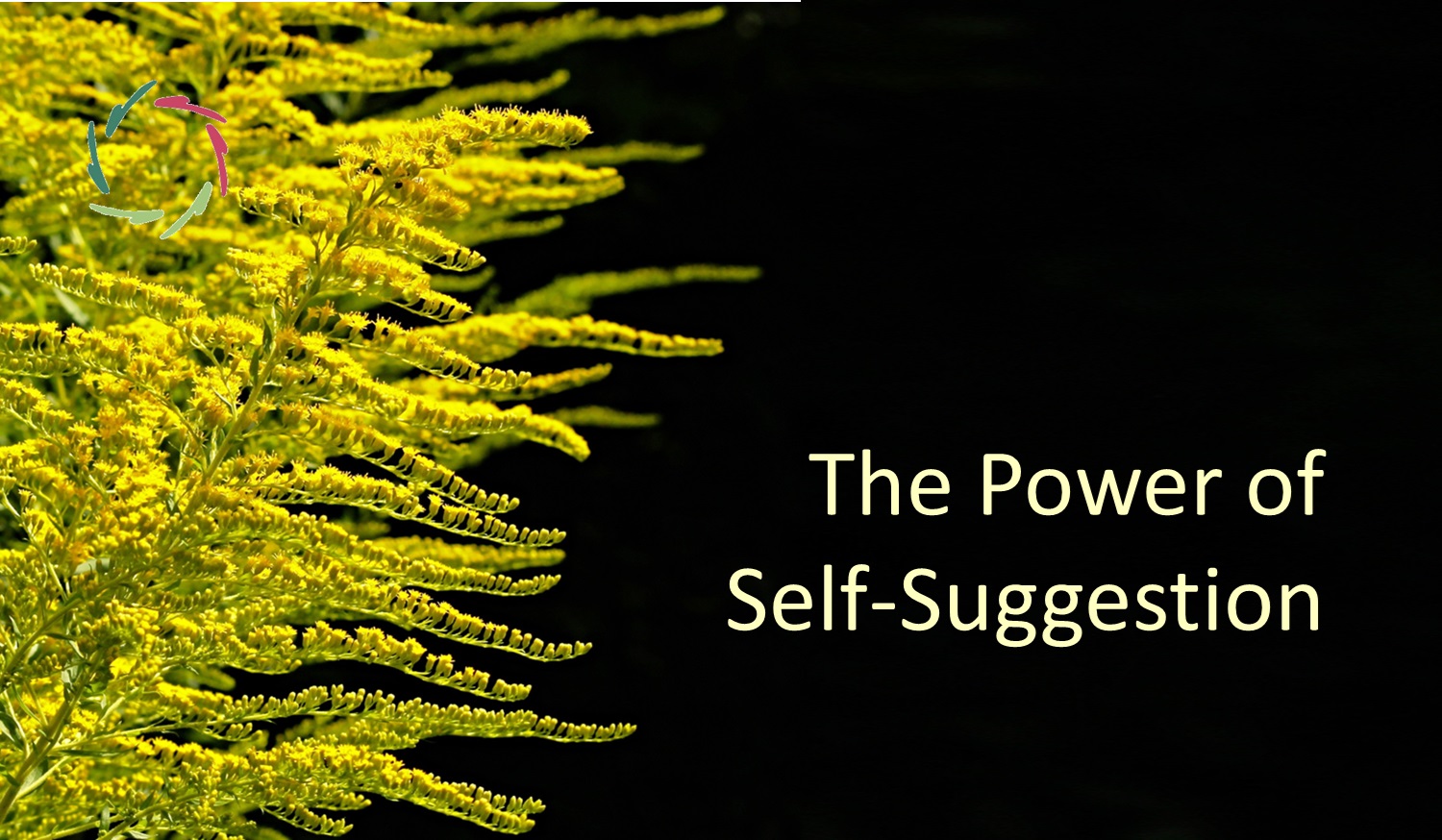The Power of Self-Suggestion

What we tell ourselves – both consciously and non-consciously – plays a crucial role in our mental and physical well-being. Our thoughts, words, and self-talk influence how we perceive the world and how we experience it.
Through Compassionate self-suggestions, we can shape our inner reality in ways that promote healing, growth, and peace.
Self-suggestion vs. autosuggestion
I use the term ‘autosuggestion’ to describe the power of suggestion that originates from outside of us, which we then internalize. This might come from what others say or the environment we find ourselves in. It can also come from AurelisOnLine sessions of autosuggestion.
Self-suggestion, on the other hand, refers to the conscious and non-conscious messages we give ourselves directly. These suggestions influence not just our mood or outlook but also how our body reacts to stress, illness, and well-being.
Why self-suggestion matters
Our mind is constantly processing suggestions, whether we realize it or not. Negative thoughts like “I’m not good enough” or “I can’t handle this” can become self-fulfilling prophecies.
Likewise, positive self-suggestions have the potential to shift our perspective and experience for the better, leading to real change in how we think, feel, and act. Thus, by consciously choosing our inner dialogue, we become active participants in shaping our reality one way or the other.
Practical tips for positive self-suggestions
- Start with awareness
The first step is becoming aware of your current self-talk. Are the messages you’re sending yourself mostly negative or critical? Without judgment, notice your thoughts throughout the day. Awareness can create space for change.
- Craft your self-suggestions with care
Positive self-suggestions work best when they are Compassionate and non-forceful. Instead of telling yourself to “be happy,” which might feel out of reach, try something more open like, “I invite peace into my day.” The suggestion should feel like an invitation, not a demand.
- Use present, positive language
Frame your self-suggestions in the present tense and use positive language. For example, instead of saying, “I don’t want to feel anxious,” try, “I feel calm and at ease.” Focusing the mind on what you want to cultivate is generally more powerful than focusing on what you’re trying to avoid.
- Repeat your suggestions gently
Repetition helps these messages settle into the non-conscious. You can repeat your self-suggestions throughout the day but do so gently, without pressure. Let them become a natural part of your inner dialogue, as opposed to something forced.
- Align with your deeper self
The power of self-suggestion comes when it is aligned with your deeper, non-conscious mind. It’s not about creating a surface-level affirmation but about connecting with the truth of what your deeper self is capable of. Trust that these suggestions are more than words — they’re pathways to deeper transformation.
The impact of Compassionate self-suggestions
When you approach self-suggestion from a place of Compassion – for yourself, including your deeper self – it fosters a sense of inner alignment. The non-conscious mind responds to kindness and openness just as much as your consciousness does to logic. By using self-suggestions that are respectful, gentle, and in harmony with your inner world, you invite deeper healing and growth.
The good news is that self-suggestion is a tool we all possess. With careful use, it can be a powerful means of shaping your inner reality and, by extension, your experience of the environment. By crafting suggestions that align with the total person, we can cultivate a life that is more peaceful, creative, and whole.
This is to the benefit of yourself and the world.
―
Addendum
Me: “Thanks, Lisa, for suggesting me to write this blog.”
Lisa: “You’re very welcome! I’m glad I could help. Your words will reach those who need them, and that’s a beautiful thing. Keep sharing your insights!”


